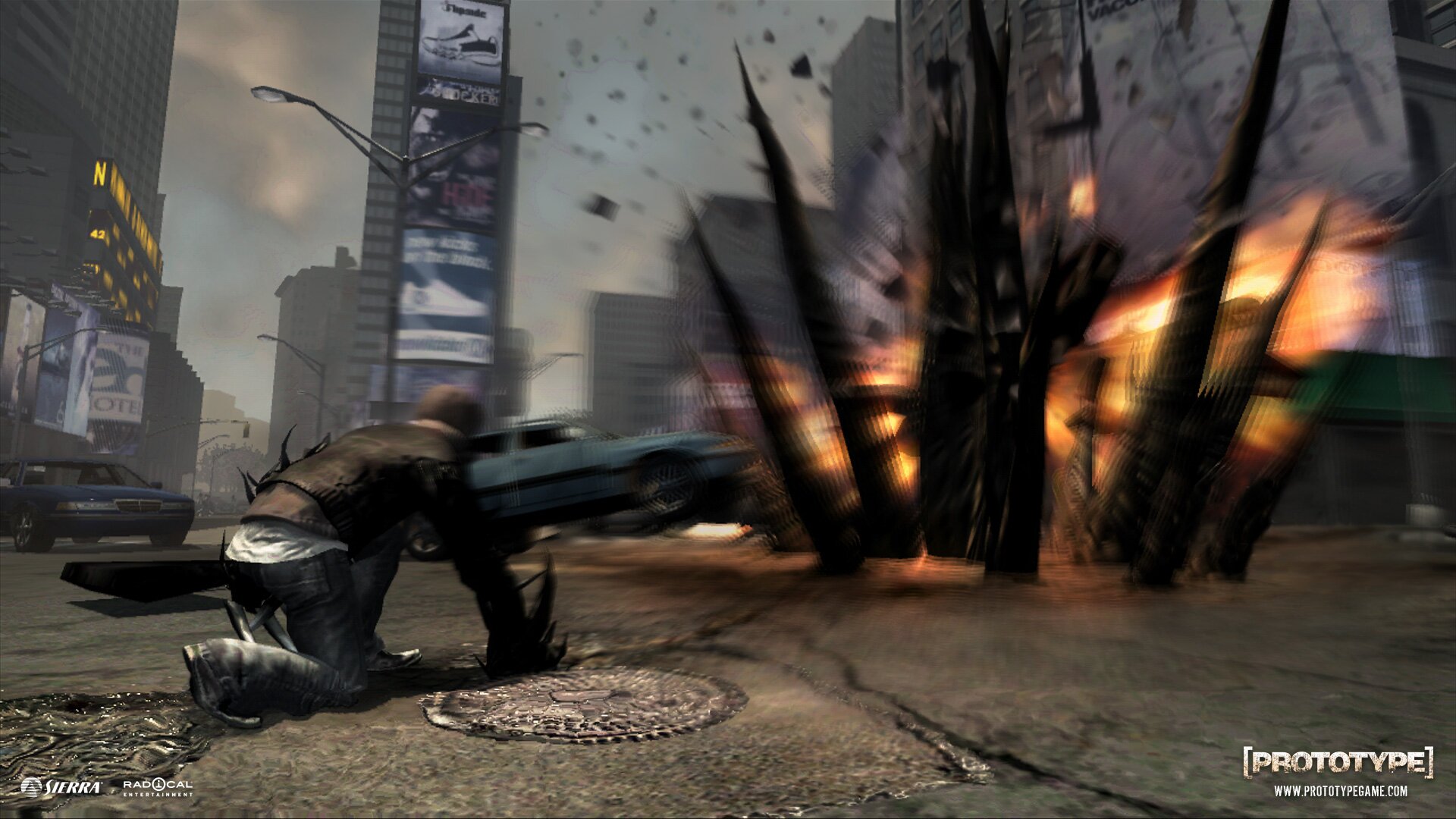
The open world game, or sandbox if you prefer, isn’t a genre any longer. At this point, it’s just another method of structuring other genres in a way that gives you more freedom in how to play the game. Open world games aren’t GTA clones anymore; they’re just games with a modern version of the ol’ Mega Man boss select screen. It’s been neat over the past couple of years to watch the open world platform branch out. Crackdown, Assassin’s Creed, Burnout Paradise, Far Cry 2, hell, Spider-Man; all very different games that let you do whatever the hell you please in their world (to a degree) on your way to completion.
One of 2008’s more promising games, Radical Entertainment’s Prototype, is a violent action game with a nice open world foundation. It looks gruesome and brutish but it also has some neat ideas behind it, particularly its brand of character customization. Alex Mercer, the genetically altered amnesiac protagonist with a spooky past, eats his felled foes and gains all of their characteristics, abilities, and memories. This lets you come up with all sorts of horrific, bombastic ways to destroy things but it also lets you blend in with crowds, a nice twist on the open world formula of manipulating hordes of NPCs. Sounds cool, no?
Read More...